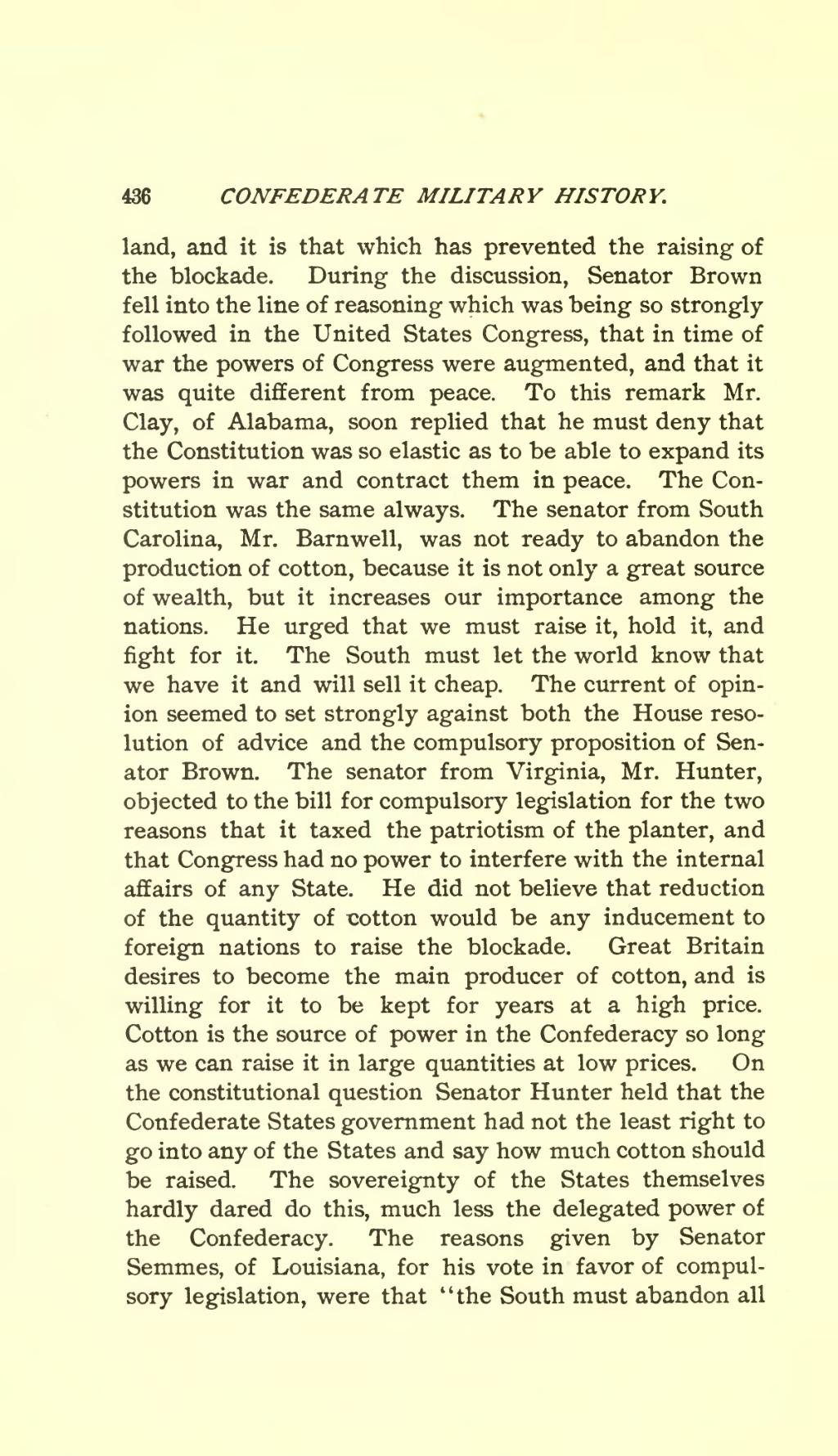land, and it is that which has prevented the raising of the blockade. During the discussion, Senator Brown fell into the line of reasoning which was being so strongly followed in the United States Congress, that in time of war the powers of Congress were augmented, and that it was quite different from peace. To this remark Mr. Clay, of Alabama, soon replied that he must deny that the Constitution was so elastic as to be able to expand its powers in war and contract them in peace. The Constitution was the same always. The senator from South Carolina, Mr. Barnwell, was not ready to abandon the production of cotton, because it is not only a great source of wealth, but it increases our importance among the nations. He urged that we must raise it, hold it, and fight for it. The South must let the world know that we have it and will sell it cheap. The current of opinion seemed to set strongly against both the House resolution of advice and the compulsory proposition of Senator Brown. The senator from Virginia, Mr. Hunter, objected to the bill for compulsory legislation for the two reasons that it taxed the patriotism of the planter, and that Congress had no power to interfere with the internal affairs of any State. He did not believe that reduction of the quantity of cotton would be any inducement to foreign nations to raise the blockade. Great Britain desires to become the main producer of cotton, and is willing for it to be kept for years at a high price. Cotton is the source of power in the Confederacy so long as we can raise it in large quantities at low prices. On the constitutional question Senator Hunter held that the Confederate States government had not the least right to go into any of the States and say how much cotton should be raised. The sovereignty of the States themselves hardly dared do this, much less the delegated power of the Confederacy. The reasons given by Senator Semmes, of Louisiana, for his vote in favor of compulsory legislation, were that "the South must abandon all
